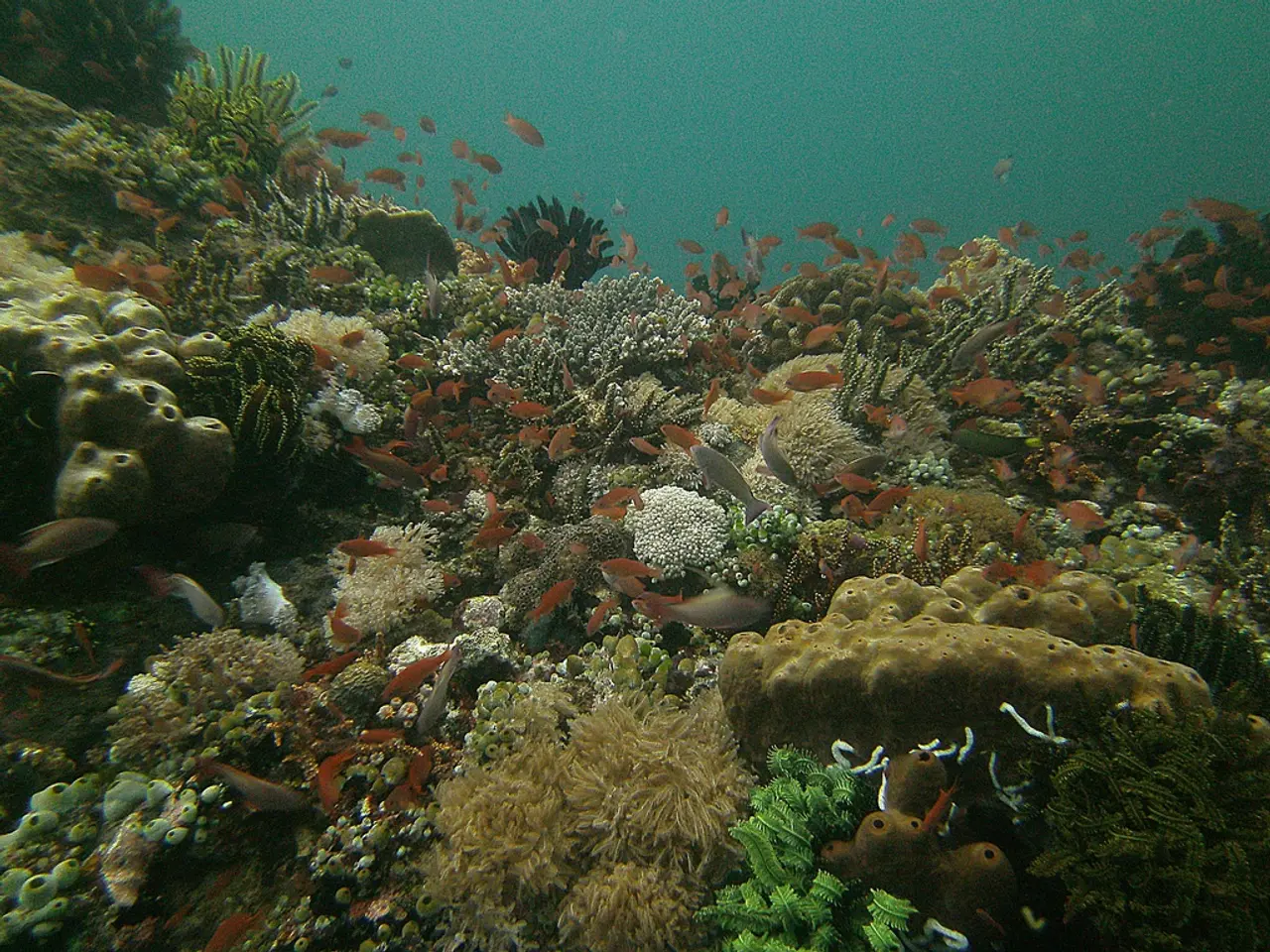Creative Suggestions for World Ocean Day Celebration
In our interconnected world, the health of our oceans is of paramount importance. Covering approximately 71% of the Earth's surface, they are home to much of the Earth's biodiversity, provide a main source of protein for billions of people, and produce around 50% of the Earth's oxygen.
However, human activities are taking a toll on our oceans. Rising greenhouse gas emissions lead to global warming, which, in turn, causes the temperature of our oceans to rise. If the current trend continues, it's predicted that there will be no coral reefs by 2050.
One of the most pressing issues is ocean acidification. Caused primarily by the absorption of increasing atmospheric carbon dioxide (CO₂) by seawater, this chemical reaction reduces the concentration of carbonate ions, essential for marine organisms like corals, shellfish, and other calcifiers to build their calcium carbonate shells and skeletons. This acidification harms calcifying marine organisms and ecosystems, threatening biodiversity, habitats like coral reefs, and the broader marine food chain.
The primary causes of ocean acidification include increased CO₂ emissions from human activities, the dissolution of atmospheric CO₂ into the ocean surface, and biological processes like photosynthesis, respiration, and decomposition.
Plastic pollution is another significant concern. It's estimated that by 2050, there could be more plastic in the sea than fish. Taking plastic home from the beach and recycling it is crucial. Using less plastic and recycling what you can is important wherever you are, so try to cut down on single-use plastics as much as possible.
Bottom trawling, a fishing method that drags heavy nets along the seabed, can have a devastating effect on the seabed. Overfishing is also a threat to marine life. Choosing sustainable tourism, especially companies that look after the environment, is important when traveling to coastal areas.
Our oceans are thought to be close to critical levels of acidity. The health of our oceans is vital for the overall health of the planet and its ability to maintain a stable climate. Organizing or joining a local beach clean-up is a way to help if you live near the sea.
Emissions can be reduced by walking or taking public transport more. Less than 10% of the Earth's oceans have been explored, and 90% of all volcanic activity occurs in the oceans. Oceans contain 97% of the Earth's water.
The World Ocean Day website offers ocean-themed resources for kids, including Octonauts-themed activities. World Ocean Day is celebrated on June 8th. A Plastic Ocean, Wonders of the Ocean, and Ocean with David Attenborough are recommended documentaries about the ocean.
Research indicates that ocean acidification has already passed safe thresholds in many parts of the ocean, highlighting an urgent need for emissions reductions and enhanced ocean protection to allow ecosystems time to adapt. The references for this article can be found at https://www.ncei.noaa.gov/news/ocean-heat-content-rises and https://www.marinebio.org/creatures/facts/.
Last updated on June 17, 2025, by Emma Vanstone. Choosing non-toxic cleaners and beauty products reduces polluting chemicals. Using energy sparingly can help save energy, as well as switching to energy efficient light bulbs, turning lights off when not needed, and being mindful of what you're using energy for. Using less water helps prevent excess runoff from running into the oceans.
In conclusion, it's crucial to take action to protect our oceans. Every small change we make can have a significant impact on preserving the health of our planet and its diverse marine life. Let's work together to ensure a sustainable future for our oceans.
- Learning about the health of our oceans is essential for understanding the Earth's biodiversity, sources of protein, and oxygen production.
- Rising levels of carbon dioxide (CO₂) in the atmosphere due to human activities increase ocean acidification, which harms marine life and ecosystems.
- Reducing plastic pollution by taking it home from the beach and recycling is crucial, as is cutting down on single-use plastics.
- The devastating impact of bottom trawling and overfishing on marine life highlights the importance of choosing sustainable tourism and responsible fishing practices.
- Protecting our oceans is essential for maintaining a stable planetary climate and preserving biodiversity.
- Joining or organizing a local beach clean-up is a practical way for those living near the sea to contribute to ocean protection.
- Emissions can be reduced through walking more and using public transport, thereby also promoting sustainable living and self-development.
- The World Ocean Day website offers educational resources and activities for kids, emphasizing the importance of educating the next generation about ocean conservation.
- Carrying out personal practices such as using non-toxic cleaners and beauty products, using energy sparingly, switching to energy-efficient bulbs, and conserving water can reduce polluting impacts and contribute to a sustainable lifestyle.




